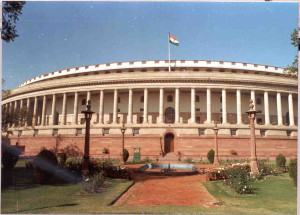New Delhi– Parliamentary approval was accorded to the Specific Relief (Amendment) Bill, 2017, giving an affected party — whose contract has not been performed by the other party — the option to arrange for completion by a third party or by its own agency (substituted performance) with the Rajya Sabha passing the legislation.
 The Bill, that amends the Specific Relief Act, 1963, had earlier been passed by the Lok Sabha and is set to become a law after the President’s assent.
The Bill, that amends the Specific Relief Act, 1963, had earlier been passed by the Lok Sabha and is set to become a law after the President’s assent.
Under the Bill, certain civil courts may be designated as special courts by the state government in consultation with the Chief Justice of a High Court to deal with cases related to infrastructure projects.
Such cases must be disposed of within 12 months from the date of receipt of summons by the defendant. This period can be extended by the courts for another six months.
The Bill additionally seeks to prevent courts from granting injunctions in contracts related to infrastructure projects, if such an injunction would hinder or delay the completion of the project.
These projects can be related to transport, energy, water and sanitation, communication, and social and commercial infrastructure such as affordable housing and the Central government may amend the list through notification.
The old Act defined specific performance as a limited right, which may be given by the court at its discretion, in the when monetary compensation is inadequate, or, when monetary compensation cannot be easily ascertained. The Bill removes these conditions and permit specific performance by courts as a general rule.
In the list of persons who may seek specific performance and against whom specific performance may be sought, the Bill adds — besides a party to the contract; or a company resulting from the amalgamation of two existing companies — a new entity to the list of parties. It now includes a limited liability partnership (LLP) formed from the amalgamation of two existing LLPs, one of which may have entered into a contract before the amalgamation.
With the Act permitting a dispossessed person, and any person claiming through such dispossessed person, to file a suit for recovery of possession of immovable property, the Bill additionally permits a person through whom the dispossessed got possession of the immovable property, to file a suit for recovery.
The Bill also inserts a new provision for engaging technical experts in suits where expert opinion may be needed. The court will determine the terms of payment of such expert. The payment will be borne by both the parties. (IANS)





